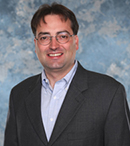Professor Ernst Publishes “Patent Exhaustion for the Exhausted Defendant: Should Parties Be Able to Contract Around Exhaustion in Settling Patent Litigation?”
January 21, 2015
Professor Samuel Ernst’s article “Patent Exhaustion for the Exhausted Defendant: Should Parties Be Able to Contract Around Exhaustion in Settling Patent Litigation?” was recently published in
University of Illinois Journal of Law, Technology & Polic
y (Volume 2014, Issue 2, 2014).
Excerpt from the abstract:
“The first sale doctrine provides that when a patent holder unconditionally authorizes another party to sell a patented item, the patent holder’s right to exclude with respect to the patented item is “exhausted.” The licensee can then sell the patented item to a third party — a downstream purchaser — and the patent holder will not be able to sue the third party for patent infringement based on the resale or other use of that item. A principal animating policy behind the exhaustion doctrine is to prevent patent-holders from receiving overcompensation for their patented inventions by, for example, aggregating royalties along multiple points in the production and distribution chain.
Patent-holders settling infringement litigation often seek to draft a license agreement that precludes application of the exhaustion doctrine, so that they may continue to pursue licensed products downstream. Such provisions are likely ineffective if drafted as post-sale restrictions on what downstream purchasers may do with their patented products. However, it is possible to contract around exhaustion by limiting the scope of the authorized sale (a “pre-sale restriction”) or through other clever licensing devices that are described in this paper.
But should such provisions be enforceable? The prevailing view in the academic literature argues from a law and economics perspective that it is economically efficient to allow patent holders to license their patents at multiple points along the production chain, and that the free market will curb patent holders’ ability to receive double-recovery.”
 Samuel Ernst
Samuel Ernst
is an assistant professor of law at Chapman University Dale E. Fowler School of Law. Professor Ernst’s scholarship focuses on patent law and he teaches in the areas of intellectual property, contracts, and civil litigation practice. Prior to joining the Fowler School of Law, Professor Ernst was a partner at the international law firm of Covington & Burling in San Francisco, practicing intellectual property, commercial, and appellate litigation, while maintaining an active pro bono practice focusing on veterans disability recovery and homeless advocacy. Professor Ernst earned his JD
magna cum laude
from Georgetown University Law Center, an M.A. in comparative literature from the University of California Los Angeles and his B.A. in modern literary studies from University of California Santa Cruz.
